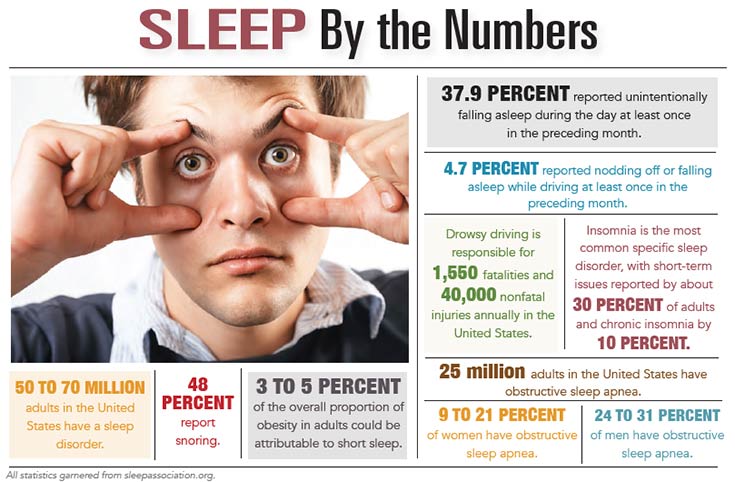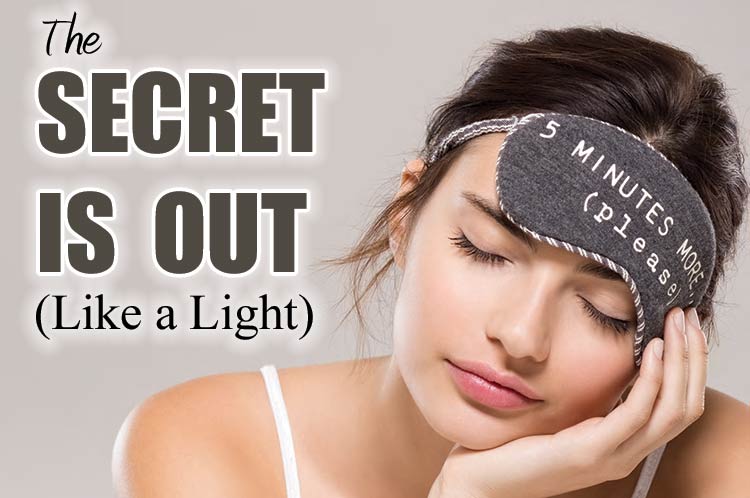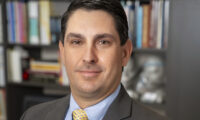How to obtain a good night’s rest is one riddle most of us are constantly trying to unravel. We’ve all read articles on the internet and in whatever magazines we choose to subscribe to – we know the advice. Do we really need to establish an early bedtime, invest in black-out curtains, avoid cocktails and subject ourselves to a life of regimentation, all for the sake of not feeling like a zombie ever again? We’ve tried all or most of it. But somehow we still wake up tired. What gives?
I’ll go ahead and share my own woes with sleep. I’ve always been one to experience lighter slumber. Easily woken up at 4 a.m for an airplane or at 6:30 a.m. for school, my practically half-conscious nights weren’t a problem until I became, well, a stressed adult with a real job that I need my A-game for – and then my sleep got even lighter. Suddenly I felt like I was simply dozing, jarred by my nocturnal housemate making a slice of toast after a late shift. I had to do something. So I resorted to anti-anxiety medications. Then I got scared they were harming my brain – and I value my brain. I tried melatonin, which didn’t seem to do much. I tried a different sleep aid. I commiserated with others.
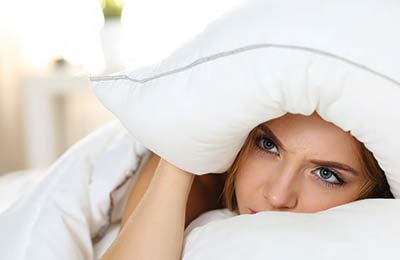
Sleep disorders plague millions of Americans, and each person’s story is different. Dr. Charles Kelly, a neurologist at Tidewater Neurology and the director of Sleep Med’s West Ashley location, pointed out that there is a vast variability for what is normal with sleeping. In other words, if you’ve always slept just six hours a night and you function perfectly well, you don’t have a sleep disorder.
“However, if your sleep habits change and affect your daily life, then there is cause for concern,” Dr. Kelly noted.
According to Dr. Dana Blalock of Sleep Better South Carolina, sleep disorders range from everyone’s favorite, insomnia, to the lesser-known. Both doctors deal primarily with sleep apnea and insomnia – the most common of sleep disorders – but see patients with more unusual illnesses as well.
Insomnia is the number one sleeping disorder.
“Insomnia is the number one sleeping disorder. But some people may have circadian rhythm disorder – such as shift workers or frequent travelers – while some people may have something called non-24-hour sleep-wake disorder, when they can’t see sunlight or daylight. There are numerous disorders,” Dr. Blalock said.
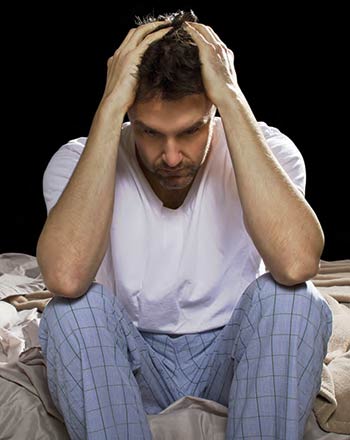
Essentially, the reasons people can’t sleep the recommended eight hours each night vary. And one sleep-related issue is often directly linked to others. For example, sleep apnea is a common disorder that can transition to other sleep disturbances.
“Periodic limb movement, which used to be called restless legs syndrome, can happen by itself or in association with sleep apnea,” Dr. Blalock commented. “Bruxism, or grinding your teeth, is another movement disorder associated with decreasing levels of oxygen. And insomnia, if the person is aware of their disrupted sleep and waking up gasping for air or choking.”
If you’ve been diagnosed with sleep apnea, a simple oral appliance can fix the issue.
Convinced you don’t have sleep apnea because your spouse assures you that you’re too attractive and delicate to snore? Think again – snoring doesn’t even have to be part of it. Apnea, a word meaning temporary cessation from breathing, has other telltale signs besides snoring, such as daytime sleepiness, elevated blood pressure, diabetes, cardiac arrhythmia, depression, the need to visit a bathroom during the night and more.
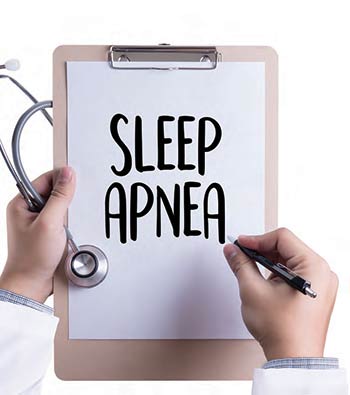
As a person who often remembers my dreams, I had to ask whether dream recall is related to any sleep disorder. Surprisingly, dreams can indeed be affected.
“Yes, dreams are related. For example, apnea is worse during REM sleep. So, if you never remembered your dreams before, but now you are, or you’re waking up during dreams and you never used to, that could be a sign of sleep apnea,” Dr. Kelly said. “Also, vivid dreams right after falling asleep – known as hypnagogia – can be a symptom of narcolepsy.”
“Sleep apnea can occur during both REM sleep and non-REM sleep,” agreed Dr. Blalock. “Many times, the obstructive apnea events occur during REM sleep and tend to be more severe.”
But how can patients know what happens while they’re unconscious – and then relay that information to a doctor? Well, that’s what sleep studies are for. A sleep study, in which patients are observed overnight, is not necessary for everyone who experiences periodic difficulty snoozing. But if you find yourself nodding off at your work desk or lacking the usual energy because you are tired, it’s worth discussing your situation with a professional. Testing for sleep apnea can even take place in a patient’s home, while other more complex disorders are tested in a lab.
And what if your sleep study reveals that you do have a sleep disorder? There are a few options to consider before resorting to prescription drugs or even over-the-counter drugs. If you’ve been diagnosed with sleep apnea, a simple oral appliance can fix the issue. At Sleep Better South Carolina, Dr. Blalock sends many tired patients home with one such appliance.
“It works by helping keep the jaw and tongue in a slightly forward position, therefore maintaining an open airway and preventing the process where the tongue obstructs the airway,” she explained. “There is a huge need for alternative treatments like this one. It also travels well and doesn’t need electricity.”
Dr. Kelly pointed out that he prefers to try alternative techniques as well and cited cognitive behavioral therapy, or CBT, as a strategy that works for many. CBT can range from simply reviewing pitfalls in a patient’s sleep hygiene – apparently if you fall asleep holding your iPhone, you can’t be mad that you sleep poorly – to online courses about relaxation techniques.
“I wouldn’t say everyone who suffers can get to sleep without a pill, because I do prescribe pills for some patients,” he admitted. “But I like to try these approaches first.”
For those of us who have discussed using a sleep aid with our doctors, it’s worth knowing the difference between a medicine formulated specifically for sleep, such as Lunesta or Ambien, and a medicine that was created for a different ailment, such as depression. In fact, even over-the-counter sleep aids are typically just antihistamines.
“In general, I would caution against using aids on a regular basis, because they can have adverse reactions,” Dr. Kelly said. “Everyone responds to medications differently. It all depends on what your doctor recommends and what your issues with sleeping are.”
The bottom line? If you’re chronically tired, talk to a sleep professional. Get a sleep study done. Don’t just resort to popping a pill every night when there are other possible solutions.
As for me, I’m going to try putting my phone on the other side of the room first and reading something that isn’t back-lit.
Wish me luck drifting off.
